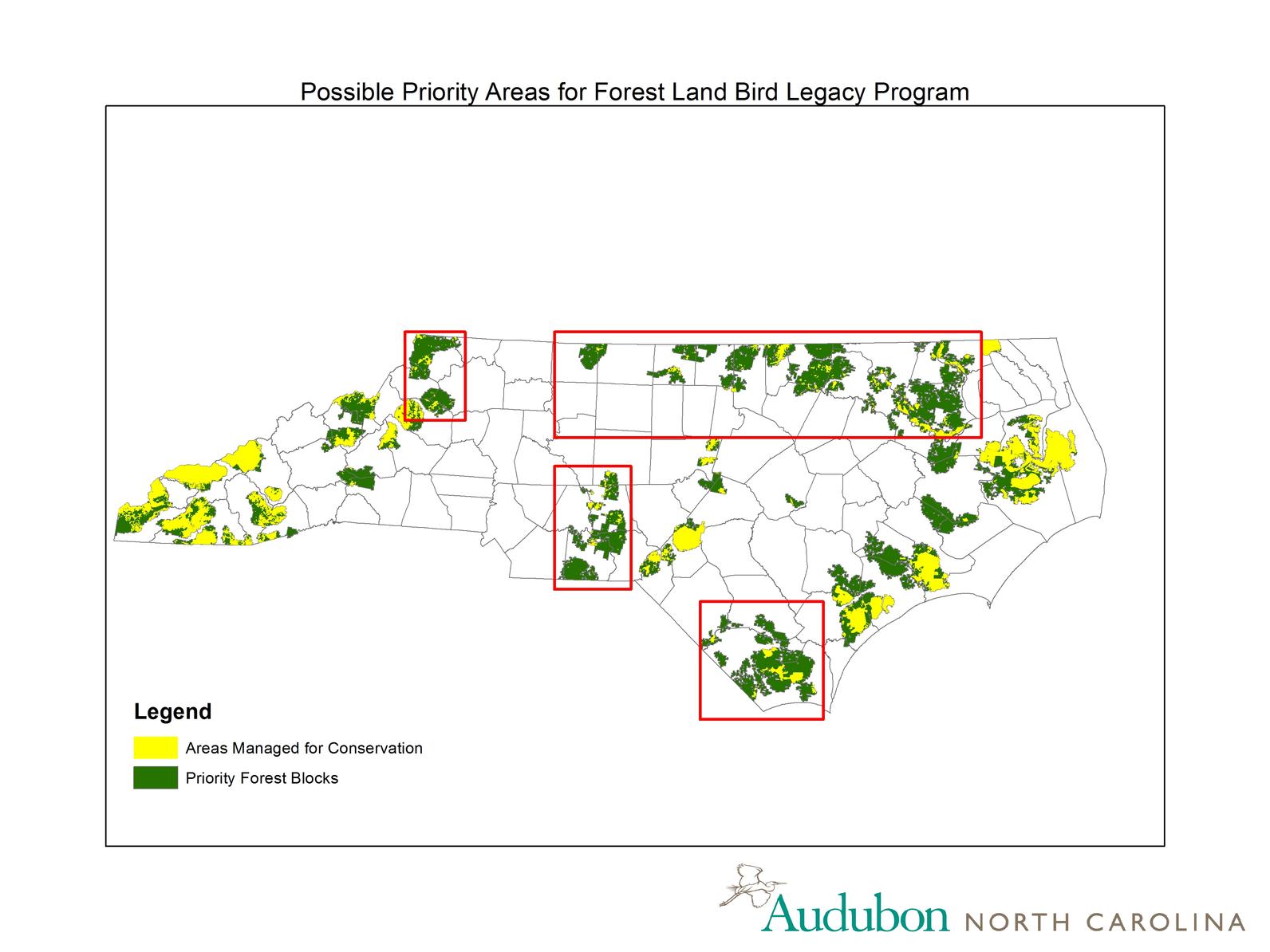Wood Thrush
Latin: Hylocichla mustelina
Learn about our work to preserve forest blocks across the state.
Photo: John Isenhour/NCWRC
The Forest Landbird Legacy Program (FLLP) guides and supports land management and habitat restoration to benefit forest birds. By establishing a protected and properly managed network of forested landscapes along the Atlantic Flyway, Audubon will work to increase and maintain healthy populations of forest dependent priority species including the Wood Thrush and Golden-winged Warbler.
Working Lands at Work
Audubon enlists landowners and foresters to help support birds that depend on forested landscapes along the Atlantic Flyway. This program provides outreach, financial assistance, tools and training that promote bird-friendly forestry practices and drive forest conservation.
In North Carolina, Audubon collaborates with conservation partners to lead the FLLP initiative establishing outreach and forest stewardship in four focal areas: Northwest Mountains, Central Piedmont and the Uwharries, the Northern Piedmont and the southeastern Coastal Plain.

Audubon NC staff will reach out to landowners though local foresters and land trust organizations to maintain forest blocks in a way that mimics the characteristics of natural forest dynamics. Methods will include hosting workshops, partnering with landowners to demonstrate beneficial management techniques, and encouraging management that creates quality bird habitats (through varied activities like creating small canopy gaps and cavity trees among other practices) to support forest landbird diversity. Audubon is working with private landowners, government entities and conservation partners, focusing on land parcels with at least 50 acres of 50-year-old+ trees. Working with partner agencies like the US Fish and Wildlife Service and NC Wildlife Resources Commission, we have identified the best locations to focus our work, facilitating technical and financial assistance on private lands.
Help Our Work Continue
In just a few years, Audubon North Carolina’s private lands outreach has expanded from early successional forest work focused in Western North Carolina, now leading forest ecosystem stewardship for the conservation of all forest-dwelling landbirds across the North Carolina.
Internationally, FLLP will contribute to Audubon’s goal to impact 35 million acres in the United States and 140,000 acres in Belize as part of the Eastern Priority Forests Initiative.
Contribute to the Forest Landbird Legacy Program and all of Audubon’s work to restore habitat for our most imperiled land birds. Click here to make a gift to the Working Lands Program.
Learn more about becoming a Landbird Steward. Start with our training webinars, found here and here. Contact Audubon North Carolina Conservation Biologist Aimee Tomcho for more information.
The Forest Landbird Legacy Program will work to protect habitats for North Carolina’s most imperiled landbirds including:
A special thank you to the program partners collaborating on the Forest Landbird Legacy Progam:
Integrating bird conservation strategies with the existing goals of landowners, biologists, hunters, foresters, recreationists and other groups will expand our conservation efforts and the impact for North Carolina birds.
Golden-winged Warbler populations are on the decline in the United States. Learn how Audubon North Carolina is impacting that decline.
Help secure the future for birds at risk from climate change, habitat loss and other threats. Your support will power our science, education, advocacy and on-the-ground conservation efforts.
Keep up-to-date on all that happens with Audubon North Carolina's research, events and volunteer opportunities.